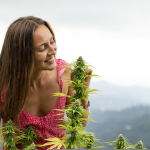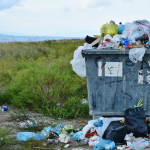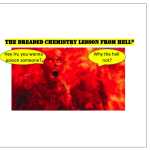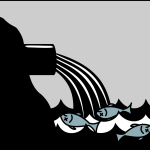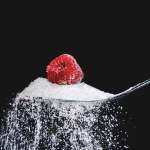"Climate-anxious" college students are pushing to have low-risk pesticides banned from their campuses. Meanwhile, states that have legalized recreational marijuana use are concerned that their new policy may cause more car accidents. We examine the science behind both stories on episode 14 of the Science Dispatch podcast.
Chemicals & Chemistry
We hear a lot about the tons of plastic that pollute our oceans, but the solution to this troubling problem gets much less airtime. Let's take a closer look at the answer. Hint: it isn't paper straws.
A recent story about the bizarre symptoms of policemen, who were exposed to street fentanyl, turned out to be anxiety attacks – not fentanyl poisoning. What happened? Yes, it's time for another Dreaded Chemistry Lesson From Hell!
The Environmental Working Group (EWG) is once again warning consumers that their food may be tainted by "forever chemicals." Let's take a look at all the important details the activist group left out.
Is widespread use of artificial sweeteners polluting the environment? If so, what do we do about it? Join us on the latest episode of the Science Dispatch podcast as we take a critical look at the evidence.
Suffering from "climate anxiety," some of America's entitled college students are working to get low-risk pesticides banned from their campuses, in a bid to slow global warming. They all need therapy and a basic science lesson.
Anti-pesticide activist Carey Gillam recently moderated a panel discussion about the weed killer glyphosate. I attended and took notes. Here's what I saw.
Environmental Working Group claims that "obesogenic" chemicals are helping to make everybody fat. Is EWG correct? Next, do we need a COVID booster shot that specifically targets Omicron sub-variants?
Environmental Working Group has again claimed that chemicals in food and consumer products are contributing to obesity. They are mistaken, embarrassingly so.
The FDA recently attempted to ban JUUL vaping products and announced a proposal to cut nicotine levels in combustible cigarettes. The policies are designed to reduce tobacco use—but will they? We have our doubts. Join us for episode 10 of the Science Dispatch podcast.
It is that time of year when my poor dog cowers under the bed as the rocket's red glare of fireworks is seen and heard across the country. Perhaps I am stealing from my fellow writer and chemist, Dr. Bloom, but I just wanted to share what I had learned about the chemistry underlying all that color filling our skies.
The activist group Slow Food recently published a listicle warning consumers about the dangers of pesticides. Let's see if their top-10 list stands up to scrutiny.
